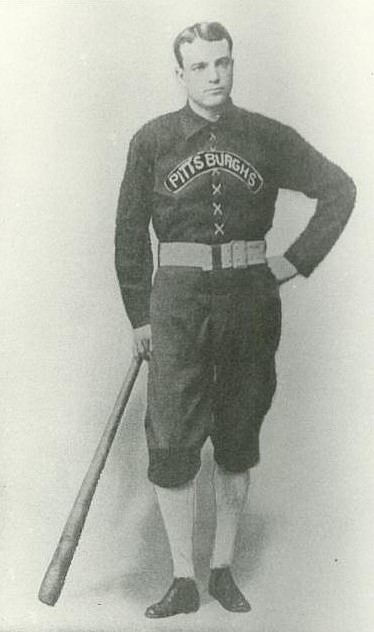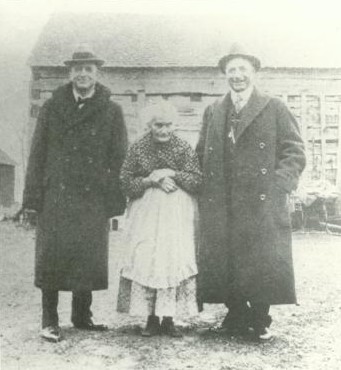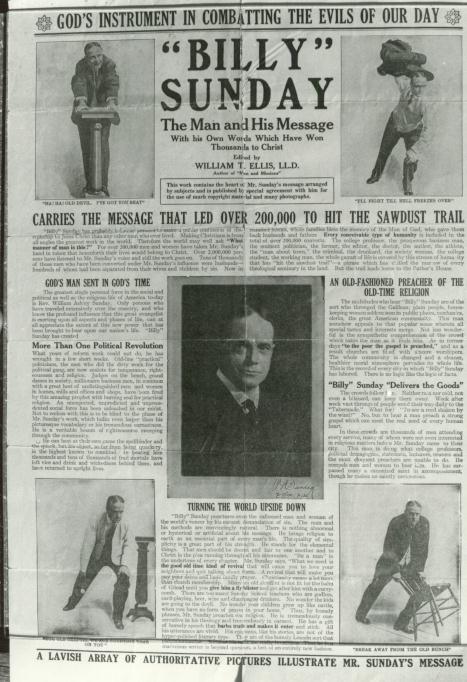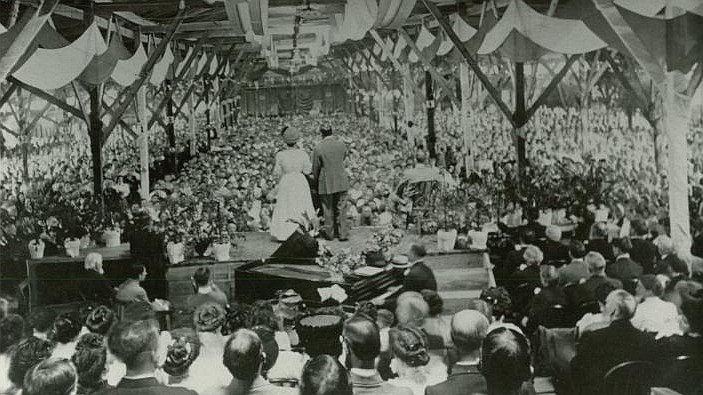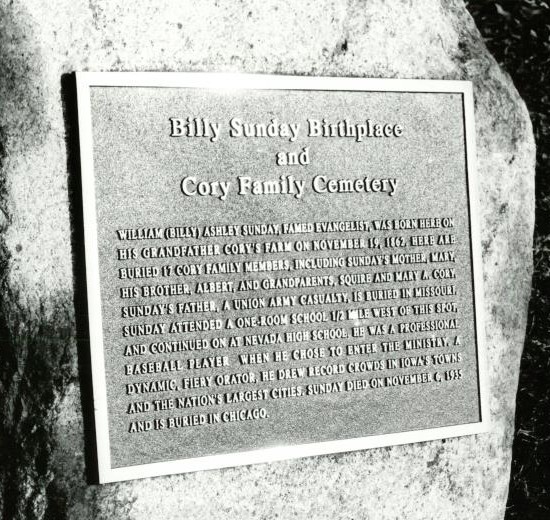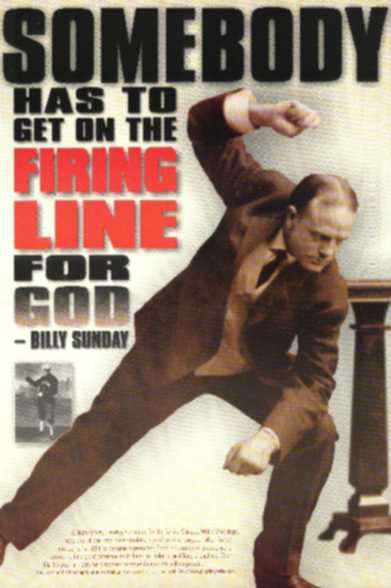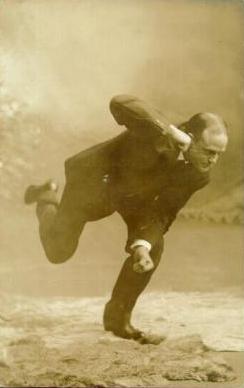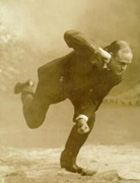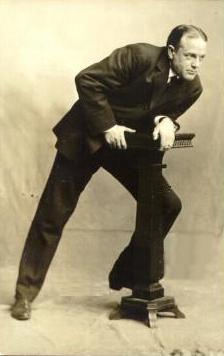 William Ashley "Billy" Sunday (November
19, 1862 -
November
6, 1935) was
noted first as a professional
baseball
player, and then more famous
evangelist.
William Ashley "Billy" Sunday (November
19, 1862 -
November
6, 1935) was
noted first as a professional
baseball
player, and then more famous
evangelist.
Born in Ames, Iowa, Sunday grew up the son of a single mother, and the family endured significant poverty during his childhood. His father, also named William, enlisted in the Iowa Infantry Volunteers four months before Sunday was born. He died, a month after Sunday was born, of an unknown disease contracted in Patterson, Missouri while on duty. Sunday's mother was left a widow and mother of three sons. She later remarried and had another son and a daughter.
At the age of 12, Sunday and his older brother were sent to Soldier's Orphanage in Glenwood, Iowa. He ran away from the orphanage two years later and worked for Colonel John Scott in Nevada, Iowa as a stable boy tending Shetland ponies. Scott gave Sunday a home and the opportunity to attend school. (The 4-H baseball field in Nevada, Iowa is named the Billy Sunday field.)
Sunday left high school before graduating and moved to Ames, Iowa to play on the baseball team. Shortly thereafter he moved to Marshalltown, Iowa. There he worked at odd jobs: was a runner on a competitive track team and played in the outfield for the local baseball team.
Marshalltown native (and future Baseball Hall-of-Famer) Cap Anson saw Sunday play after being told by the Marshalltown coach that he should come see Sunday play. Anson signed Sunday on to the league-leading Chicago White Stockings. Although Sunday struck out his first thirteen times at bat he was acknowledged to be the champion sprinter of the National League. At one point Sunday raced Arlie Latham, chamption sprinter of the American League, and Sunday beat him by fifteen feet. Sunday played professional baseball for eight years for the Chicago, Pittsburgh, and Philadelphia teams.
In 1887, after a night of drinking with some of his teammates, Sunday was invited to attend a service at the Pacific Garden Mission in Chicago, Illinois. He began attending services at the mission regularly, and it was after one of these services that he accepted Jesus Christ as his saviour and was "born again." Sunday married Helen A. Thompson in September 1888, and in 1891 he quit baseball to devote his energies to the Young Men's Christian Association (YMCA). Sunday spent time as an assistant to another evangelist before embarking solo in 1896. He was ordained as a preacher in the Presbyterian church in 1903. Sunday was one of the first prominent preachers to make use of the then-new medium of radio.
Billy Sunday is most noted for his "fire-and-brimstone" approach to evangelism. Holding a strictly fundamentalist view, he would often preach fiery sermons against political liberalism, evolution, alcohol, and so forth. His energy and vitality won many converts. This in turn led to his accumulating a small fortune through contributions at his sermons. He died a wealthy man in 1935 at the depth of the Depression when about one-third of the population was unemployed. He left a large estate as well as trust funds for his children.
Sunday is noted as being one of the major social influences in the temperance movement leading to the adoption of Prohibition in 1919. One of his most famous sermons was "Booze, Or, Get on the Water Wagon," which convinced many people to give up drinking. As the tide of public opinion turned, he continued to strongly support Prohibition, and after its repeal in 1933, Sunday called for its reintroduction. He said “ I am the sworn, eternal and uncompromising enemy of the liquor traffic. I have been, and will go on, fighting that damnable, dirty, rotten business with all the power at my command.” Sunday preached that “whiskey and beer are all right in their place, but their place is in hell.”
His popularity waned in his later years and he even became the subject of derision. One of his revival songs, ‘Brighten the Corner Where You Are,’ became a drinking song in the blind pigs that prospered during Prohibition. One line, ‘Someone far from harbor you may guide across the bar’ called the waiter for another stein of beer.” But, true to his word, continued to preach against alcohol until his death.
